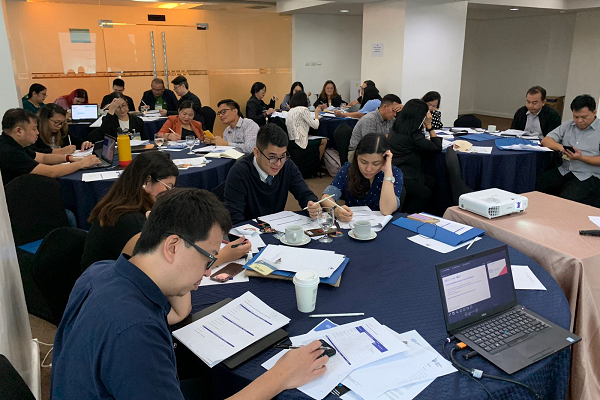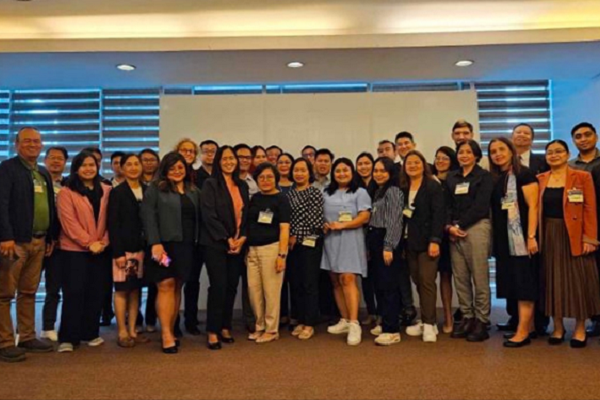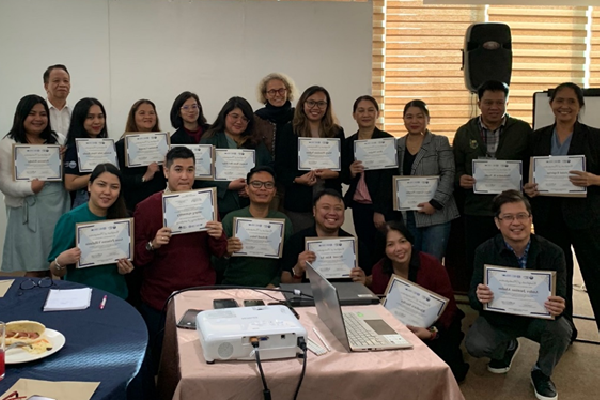Contact us: digitalwages@ilo.org
ILO and ECOP conduct validation and training of trainers workshop on responsible wage digitization for micro and small enterprises in the Philippines

The ILO’s Global Centre on Digital Wages for Decent Work and the Employers Confederation of the Philippines (ECOP) are working together to promote responsible digitization of wage payments among micro- and small enterprises (MSEs) in the Philippines. As part of this partnership, they conducted a two-day validation and training of trainers (ToT) workshop on a new training course on wage digitization for MSEs in Manila on 17 and 18 October.

The ToT workshop welcomed 20 selected trainers from the ECOP secretariat and its local chapters, as well as trainers from its affiliated business associations, such as the Philippine Chamber of Commerce and Industry, Cebu Chamber of Commerce and Industry and the Davao City Chamber of Commerce and Industry. In addition, resource persons from national government agencies, including the Bangko Sentral ng Pilipinas, Department of Labor and Employment and the Department of Trade and Industry, joined the workshop to contribute to the validation of the training content.
This course for MSEs includes know-how, tools and strategies that will enable enterprises to successfully transition to digital wage payments in a responsible manner, ensuring that benefits are shared by both employers and their workers. It gives an overview of the use and benefits of digital payments (with a specific attention to digital wages), it emphasizes the importance of a responsible transition and it guides MSEs through the steps to implement a responsible digitization, including elements of human resource management.

The first day of the validation and ToT workshop included lectures, plenary and group discussions and other participatory activities to enhance participants’ understanding of digital wage payments and a responsible wage digitization. The second day was devoted for microteaching that allowed the trainers to demonstrate their learning and practice the delivery of the training. Throughout the workshop, the participants provided comments and suggestions to the training content and the methodology to refine country specific information and ensure full adaptability to the Philippine context.
The participants in this validation and ToT workshop will be rolling out the training to MSEs located across the various regions of the Philippines in the coming months.
